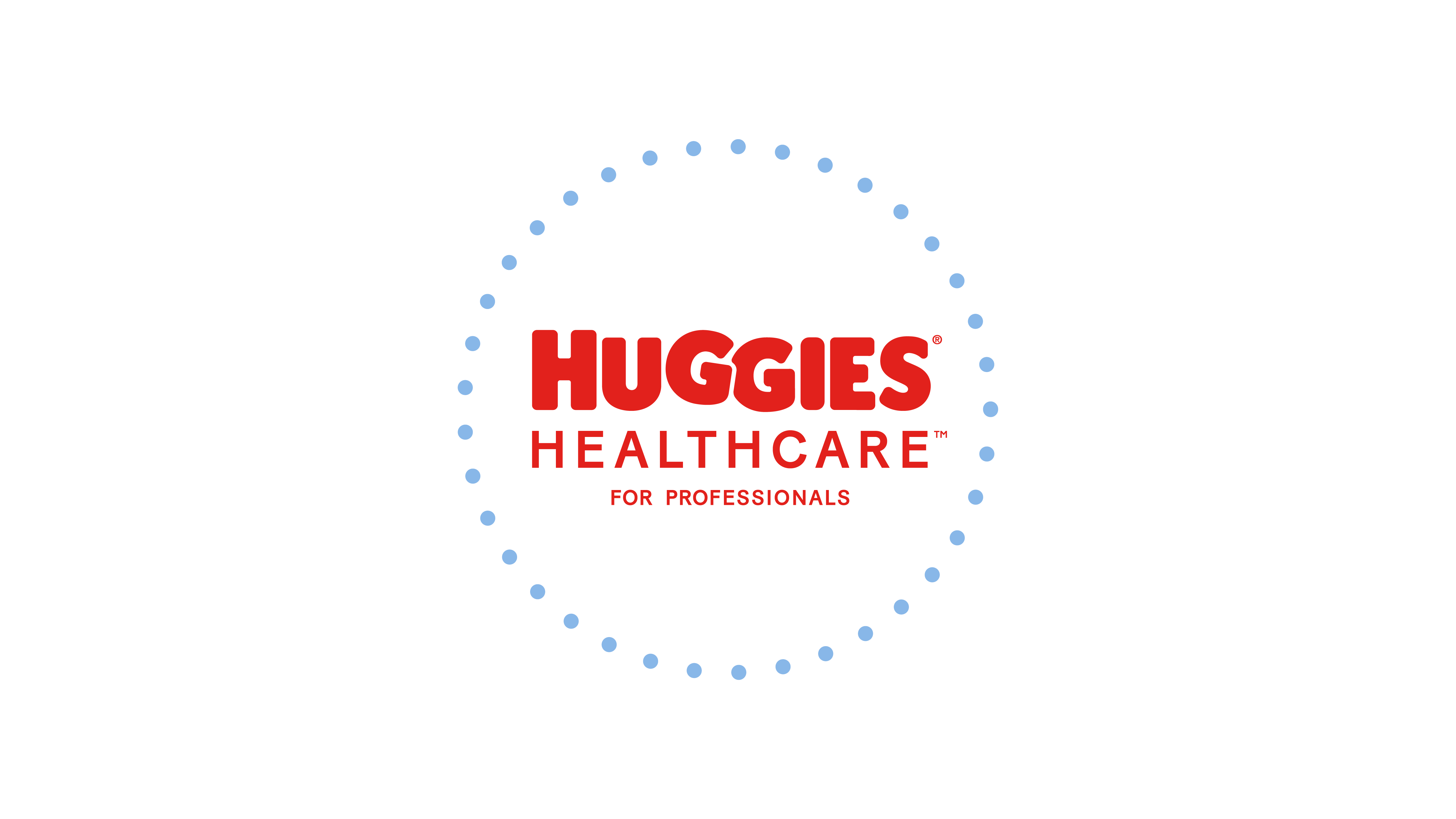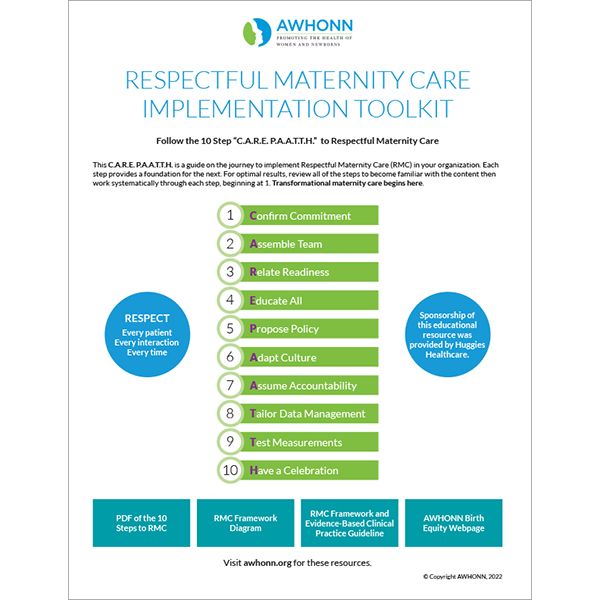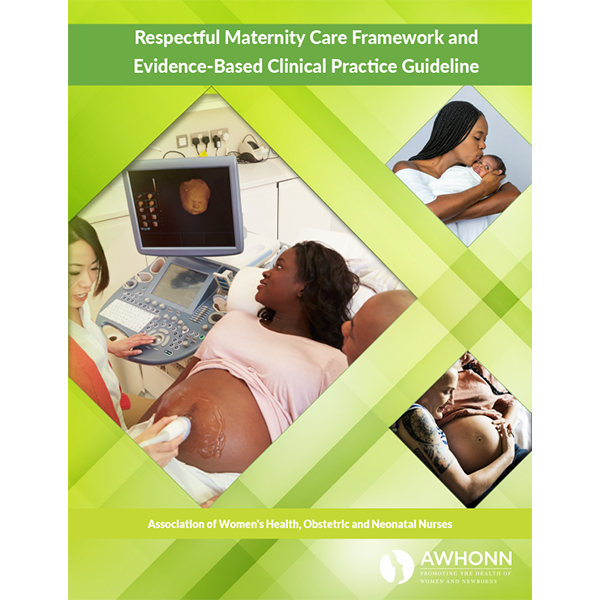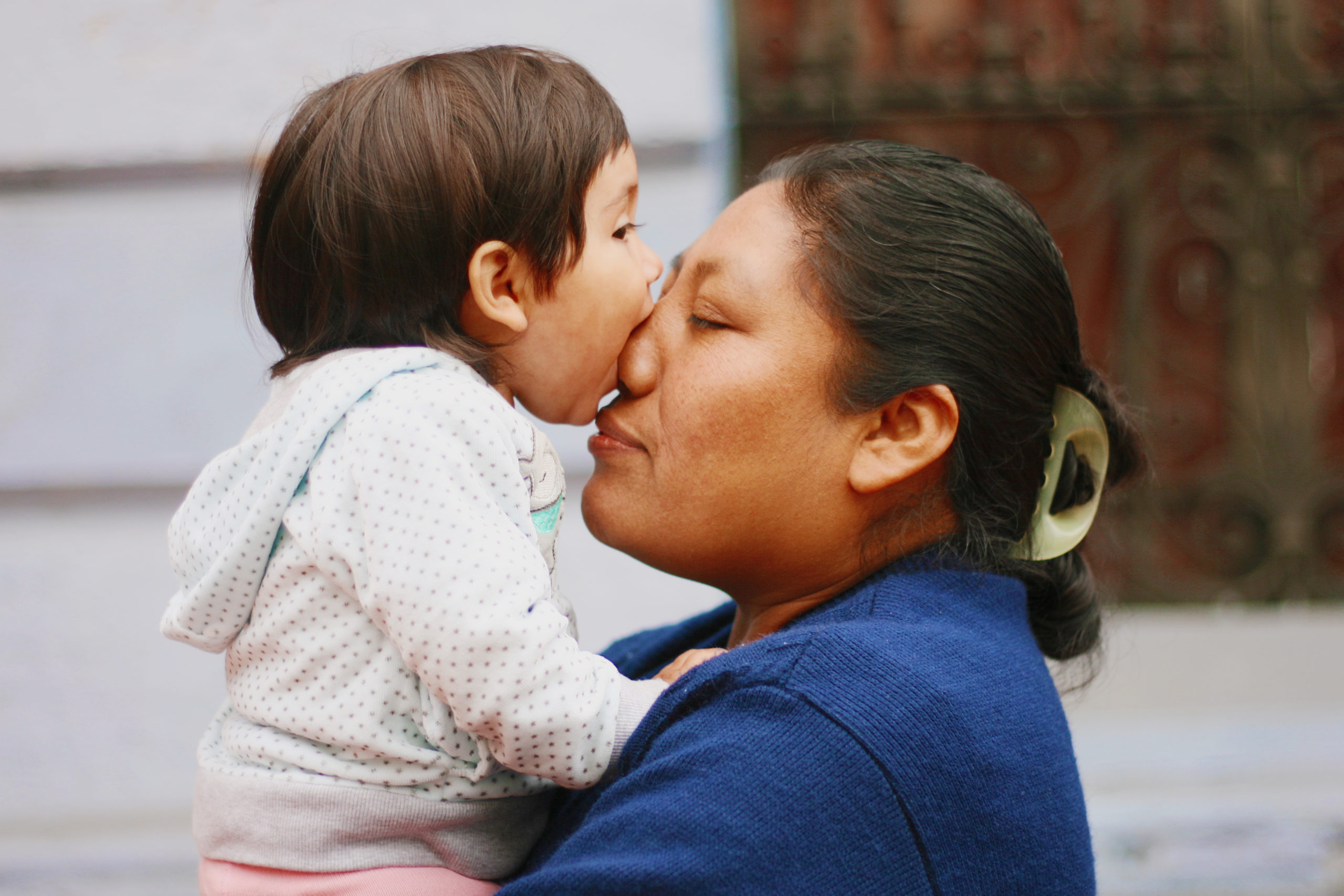Respectful Maternity Care Evidence-Based Guideline
The new Respectful Maternity Care Framework and Evidence-Based Clinical Practice Guideline, a first-of-its-kind resource on respectful nursing care from AWHONN, provides evidence-based approaches that help reduce disparities in maternal morbidity and mortality outcomes and support birthing women and their families as they safely prepare for birth, postpartum recovery, and begin breastfeeding and parenting.
AWHONN thanks its partner Huggies® Healthcare™ for support of this resource.
AWHONN thanks its partner Huggies® Healthcare™ for support of this resource
Respectful Maternity Care
Respectful Maternity Care (RMC) is an approach to care that emphasizes the fundamental rights of women, newborns, and families.
Attitudes and behaviors of health care providers are entrenched in cultural norms, and implicit and explicit bias may cause unintended harm during patient interactions. These factors may lead to harmful consequences and place patients at greater risk for not receiving appropriate attention to address individual concerns or quality of care, specifically in the intrapartum and postpartum periods.
AWHONN has released new resources that promote equitable access to evidence-based care while recognizing unique needs and preferences. Make the commitment today to provide Respectful Maternity Care to every patient, every interaction, every time.
- Enhance awareness regarding the need for RMC
- Support the implementation of RMC processes
RESULTS OF A QUALITATIVE STUDY
Exploring the Experiences of Black Mothers and Labor and Delivery Nurses in Hospital Settings
AWHONN is pleased to release the report of qualitative research conducted by the Black Women’s Health Imperative as a key component of our organization’s multi-year, multifaceted quality improvement project titled Empowering Women to Obtain Needed Care Implementation and Evaluation Project. This grant project was supported by Merck, through its Merck for Mothers initiative.
KNOWLEDGE TO ACTION
Care Equity for Black Moms
According to the Centers for Disease Control and Prevention (CDC), approximately 700 women across the United States (U.S.) die each year as a result of pregnancy-related complications. More than 60% of these deaths are preventable, and non-Hispanic Black women experience pregnancy-related deaths at a rate three times that of Non-Hispanic White women (CDC, 2019; 2021), a racial disparity that is mirrored across many maternal and infant outcomes.
AWHONN is committed to educating health care providers about the causes and consequences of discrimination and bias in maternal health care. We challenge healthcare providers to use this video to help change mindsets around racial disparity, and to transform knowledge into actions that pave a pathway to equitable treatment for all women of color.
AWHONN thanks its partner Merck for Mothers for its support.
The production of this video was supported by a grant to AWHONN from Merck, through Merck for Mothers, the company’s global initiative to help create a world where no woman has to die while giving life. This video is the sole responsibility of its authors. Merck for Mothers is known as MSD for Mothers outside the United States and Canada.
SBAR for Inclusive & equitable patient care
SBAR is a technique that is typically used to frame conversations between health care providers regarding a patient’s condition and clinical status. SBAR in this circumstance is adapted to promote respectful and inclusive patient communication and care.
The first in a series, the SBAR for Black Moms explores racial bias and offers ideas on how to implement small changes that have a big impact.
Dismantling Racism
Saving Moms and Babies
Watch the recordings of the AWHONN Summit that explores the reasons why Black mothers continue to die in the first-year post-birth at 3-4 times the rate of all other mothers. This leaves a newborn without a mother, and a family without their cornerstone, compass, and anchor. The COVID-19 pandemic has made these longstanding inequities in health and healthcare more visible.
Equitable care thought leaders and AWHONN nurses describe specific strategies, actions such as allyship and interventions nurses can use to reduce these deadly disparities, including “holding space” for women, “listening” to women and “trusting women” when they say “something’s not right . . .”
Through these videos, you’ll:
When Hopes & Dreams Clash
with Racism in Healthcare
Respectful Maternity Care Resources
Advice from Nurses for Consumers Regarding Respectful Care




































